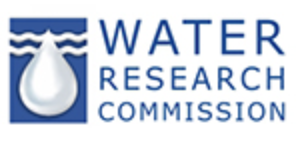Water Research Commission (WRC)

The WRC was established in terms of the Water Research Act (Act No 34 of 1971), following a period of serious water shortage. It was deemed to be of national importance to generate new knowledge and to promote the country’s water research purposefully, owing to the view held that water would be one of South Africa’s most limiting factors in the 21st century. In 1971 when the WRC was founded, water research and development (R&D) in South Africa was limited to a few institutions and the funding level inadequate. There was no research co-ordination and an apparent neglect of some key research fields. In addition, there was little strategic direction or leadership that would provide for the identification of priority areas or appropriate technology transfer. It was to address these issues, that the WRC was established.
Currently, South Africa is still under threat of a lack of sufficient water, while water quality and availability issues are becoming more acute. However, the country is much better prepared to deal with this problem owing to the WRC’s meaningful contribution to the developmentof the capacity of the water sector, the broadening of the country’s water-centred R&D base, and the WRC’s continued commitment to direct and fund research on critical issues.
In the future (short- to long-term), it is envisaged that South Africa’s water problems may intensify. Issues such as water for all, quality of life, and a sustainable environment are an essential part of the country’s national priorities and require considerable attention. In addition, implementation of the National Water Act of 1998 and the related national water strategy places considerable demand on water management and calls for research support. The role of South Africa in SADC and NEPAD (New Partnership for Africa’s Development), especially with regard to water resource and water supply and sanitation issues, poses new challenges and requires new initiatives which are within the mandate of the WRC.
Hence, the mandate which has been entrusted to the WRC includes:
-
Promoting co-ordination, co-operation and communication in the area of water research and development
-
Establishing water research needs and priorities
-
Stimulating and funding water research according to priority
-
Promoting effective transfer of information and technology
-
Enhancing knowledge and capacity-building within the water sector.
Core Strategy
The WRC recognises that adapting and responding to a changing, dynamic environment and providing South Africa with value for the money invested in water R&D, is an immense challenge. The strategy which has been developed and is continuously being refined by the WRC seeks to ensure that the organisation remains proactive in addressing society’s current and future needs for water-related problem-solving initiatives.
The essence of the strategy is, therefore, to be continuously relevant and effective in supporting both the creation of knowledge through R&D funding and the transfer and dissemination of the created knowledge. An appropriate, sustainable knowledge base that is effective in its ability to absorb new knowledge is a prerequisite for effective knowledge dissemination. The WRC, therefore, aims to develop and support a water-related knowledge base in South Africa which is both representative and sustainable, with all the necessary competencies and capacity vested in the corps of experts and practitioners within academia, science councils, other research organisations and government organisations (central, provincial and local) which serve the water sector.
The WRC provides the country with applied knowledge and water-related innovation, by continuously translating needs into research ideas and, in turn, transferring research results and disseminating knowledge and new technology-based products and processes to end-users. By supporting water-related innovation and its commercialisation, where applicable, the WRC seeks to provide further benefit for the country.
The WRC aligns itself with national priorities while helping to position the country in the African continent through the WRC’s involvement in NEPAD.
In summary, the strategic direction of the WRC is focused on:
-
An integrated approach to meeting South Africa's societal and water-sector R&D needs
-
Provision of integrated solutions to invariably complex, inter-disciplinary problems
-
Ongoing strategic identification of needs (short, medium and long-term needs, both explicit and implicit)
-
Investment in knowledge creation, transfer and dissemination in a set of 5 Key Strategic Areas (KSAs).